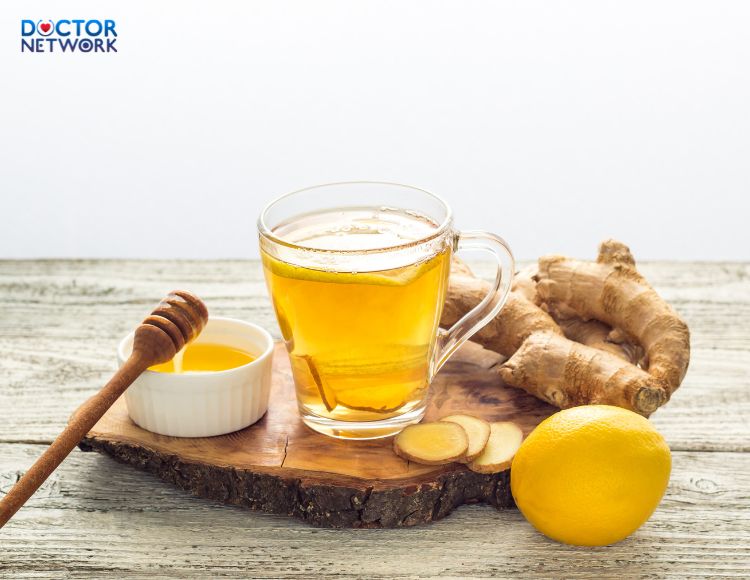Asthma, a chronic respiratory condition affecting millions worldwide, has prompted many to seek alternative treatments alongside conventional medicine. This comprehensive guide delves into the world of folk remedies for asthma, examining their potential benefits, risks, and scientific basis. We’ll explore various traditional treatments, from herbal remedies to homeopathy, while emphasizing the importance of integrating these approaches with professional medical care.
Understanding Asthma and Traditional Treatments
What is Asthma?
Asthma is a chronic inflammatory disorder of the airways characterized by recurrent episodes of wheezing, breathlessness, chest tightness, and coughing. This condition affects the bronchial tubes, causing them to narrow and produce excess mucus, making breathing difficult. Asthma can be triggered by various factors, including:
- Allergens (e.g., pollen, dust mites, pet dander)
- Respiratory infections
- Physical activity
- Cold air
- Air pollutants and irritants
- Stress and strong emotions

Asthma is a chronic inflammatory disorder of the airways characterized by recurrent episodes of wheezing, breathlessness, chest tightness, and coughing
There are several types of asthma, including:
- Allergic asthma
- Non-allergic asthma
- Exercise-induced asthma
- Occupational asthma
- Nocturnal asthma
The Rise of Traditional Treatments
Folk remedies, also known as traditional or alternative treatments, have been used for centuries to manage various health conditions, including respiratory ailments like asthma. These remedies often stem from cultural practices, passed down through generations, and are based on natural ingredients and holistic approaches to health.
The resurgence of interest in traditional treatments can be attributed to several factors:
- Desire for natural alternatives
- Cultural heritage and traditional wisdom
- Perceived limitations of conventional medicine
- Holistic approach to health and wellness
Why Explore Traditional Treatments for Asthma?
Investigating folk remedies for asthma management offers several potential benefits:
- Complementary approach: Traditional treatments may work alongside conventional medications to provide additional relief.
- Fewer side effects: Natural remedies often have fewer adverse effects compared to some pharmaceutical options.
- Personalized care: Folk remedies can be tailored to individual needs and preferences.
- Empowerment: Exploring alternative treatments allows patients to take an active role in their health management.
However, it’s crucial to approach traditional treatments with caution:
- Efficacy varies: Not all folk remedies have been scientifically proven effective.
- Potential interactions: Some natural treatments may interact with prescribed medications.
- Quality control: Herbal products and supplements are not regulated as strictly as pharmaceuticals.
Important: Always consult with a healthcare professional before incorporating any new treatments into your asthma management plan.
Popular Folk Remedies for Asthma
Herbal Remedies
Herbal treatments have been used for centuries to alleviate asthma symptoms. Here are some commonly used herbs and their potential benefits:
| Herb | Potential Benefits | Possible Risks |
|---|---|---|
| Eucalyptus | Decongestant, anti-inflammatory | May interact with certain medications |
| Ginger | Anti-inflammatory, bronchodilator | May increase bleeding risk |
| Licorice root | Anti-inflammatory, expectorant | Can affect blood pressure and potassium levels |
| Turmeric | Anti-inflammatory, antioxidant | May interact with blood thinners |
| Boswellia | Anti-inflammatory, supports lung function | Can cause digestive issues in some people |

Mix ginger tea with honey, drink every morning to boost immunity and reduce respiratory inflammation
While these herbs show promise, more research is needed to fully understand their effectiveness and safety in asthma management.
Homeopathic Remedies
Homeopathy is based on the principle of “like cures like,” using highly diluted substances to stimulate the body’s natural healing processes. Some homeopathic remedies commonly used for asthma include:
- Arsenicum album
- Ipecacuanha
- Natrum sulphuricum
- Pulsatilla
Potential benefits of homeopathy include:
- Individualized treatment
- Minimal side effects due to high dilution
- Holistic approach to health
Limitations:
- Lack of scientific consensus on efficacy
- Variability in quality and standardization of remedies
Other Traditional Treatments
Several other folk remedies have been explored for asthma management:
- Acupuncture: This ancient Chinese practice may help reduce inflammation and improve lung function.
- Aromatherapy: Essential oils like eucalyptus and peppermint may help open airways and reduce congestion.
- Dietary changes:
- Increasing intake of omega-3 fatty acids
- Consuming anti-inflammatory foods (e.g., fruits, vegetables, whole grains)
- Avoiding potential trigger foods (e.g., dairy, eggs, soy)
- Breathing exercises: Techniques like the Buteyko method or pranayama may improve lung function and reduce reliance on rescue inhalers.
Exploring the Science Behind Folk Remedies
Research Supporting Traditional Treatments
While many folk remedies lack extensive scientific backing, some studies have shown promising results:
- A systematic review published in the Journal of Asthma found that certain herbal preparations may have beneficial effects on lung function and asthma symptoms.
- Research in the European Journal of Integrative Medicine suggests that acupuncture may provide complementary benefits in asthma management.
- A study in Phytomedicine demonstrated the anti-inflammatory effects of boswellia in animal models of asthma.
Potential Mechanisms of Action
Traditional remedies may work through various mechanisms:
- Anti-inflammatory effects: Many herbs contain compounds that reduce airway inflammation.
- Bronchodilation: Some natural substances may help relax airway muscles.
- Immunomodulation: Certain remedies may influence the immune response involved in asthma.
- Antioxidant properties: Natural treatments often contain compounds that combat oxidative stress in the lungs.
Limitations of Existing Research
Despite some promising findings, research on folk remedies for asthma faces several challenges:
- Small sample sizes in many studies
- Lack of standardization in herbal preparations
- Difficulty in designing placebo-controlled trials for some treatments
- Potential publication bias favoring positive results
More rigorous, large-scale studies are needed to fully evaluate the efficacy and safety of traditional asthma treatments.
Safety and Considerations for Asthma Management
Potential Risks and Side Effects
While many folk remedies are generally safe, they can pose risks:
- Allergic reactions to herbal ingredients
- Interactions with prescribed medications
- Contamination or adulteration of herbal products
- Delayed seeking of necessary medical treatment
Critical: Always inform your healthcare provider about any alternative treatments you’re considering or using.
Not a Replacement for Conventional Treatment
Folk remedies should complement, not replace, prescribed asthma medications and therapies. Conventional treatments, such as inhaled corticosteroids and bronchodilators, remain the cornerstone of asthma management.
Finding the Right Approach
The most effective asthma management often involves a combination of conventional and complementary approaches. Work closely with your healthcare team to develop a personalized treatment plan that may include:
- Prescribed medications
- Lifestyle modifications
- Allergen avoidance strategies
- Appropriate traditional treatments
Finding Reputable Information and Resources
Resources for Information on Asthma
Reliable sources for asthma information include:
- American Lung Association
- World Health Organization – Asthma
- National Heart, Lung, and Blood Institute
Finding Qualified Practitioners
When seeking practitioners of traditional medicine:
- Look for proper certification and credentials
- Check for membership in professional organizations
- Ask about their experience treating asthma specifically
- Seek recommendations from trusted healthcare providers

You should see a doctor if you experience the above symptoms
Continuing Research and Development
The field of traditional medicine for asthma is evolving:
- Ongoing clinical trials are evaluating various herbal and alternative treatments
- Integrative medicine programs at major medical centers are exploring combined approaches
- Funding for research on complementary and alternative medicine is increasing
Stay informed about new developments by following reputable medical journals and asthma organizations.
Frequently Asked Questions about “folk remedies for asthma”
- Can folk remedies cure asthma? No, there is currently no cure for asthma. Traditional treatments may help manage symptoms but should not be considered a cure.
- Are natural remedies safe for children with asthma? Natural remedies can pose risks for children. Always consult a pediatrician before using any alternative treatments for a child with asthma.
- How long does it take to see results from traditional asthma treatments? Response times vary widely. Some people may experience relief quickly, while others may need weeks or months to notice effects.
- Can I stop my prescribed medications if I start using folk remedies? Never discontinue prescribed medications without consulting your doctor. Folk remedies should complement, not replace, conventional treatments.
- Are there any diet changes that can help with asthma? Some people find that an anti-inflammatory diet rich in fruits, vegetables, and omega-3 fatty acids may help manage asthma symptoms. However, dietary changes should be discussed with a healthcare provider.
Scientific Researches on folk remedies for asthma
- “Herbal interventions for chronic asthma in adults and children: a systematic review and meta-analysis” by Clark et al., published in Primary Care Respiratory Journal (2010).
- “Effects of Butterbur treatment in intermittent allergic rhinitis: a placebo-controlled evaluation” by Schapowal et al., in Annals of Allergy, Asthma & Immunology (2004).
- “Ginkgo biloba for asthma” by Guinot et al., published in the Cochrane Database of Systematic Reviews (2002).
- “The effects of vitamin C on airway responsiveness to inhaled histamine in moderate asthma” by Bucca et al., in European Respiratory Journal (1990).
- “Effect of Boswellia serrata on pulmonary function and exercise performance in patients with asthma” by Gupta et al., published in Phytomedicine (1998).
References:
Kiểm Duyệt Nội Dung
More than 10 years of marketing communications experience in the medical and health field.
Successfully deployed marketing communication activities, content development and social networking channels for hospital partners, clinics, doctors and medical professionals across the country.
More than 6 years of experience in organizing and producing leading prestigious medical programs in Vietnam, in collaboration with Ho Chi Minh City Television (HTV). Typical programs include Nhật Ký Blouse Trắng, Bác Sĩ Nói Gì, Alo Bác Sĩ Nghe, Nhật Ký Hạnh Phúc, Vui Khỏe Cùng Con, Bác Sỹ Mẹ, v.v.
Comprehensive cooperation with hundreds of hospitals and clinics, thousands of doctors and medical experts to join hands in building a medical content and service platform on the Doctor Network application.


























